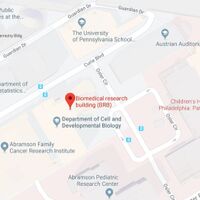Alcoholic fatty liver disease
Causes
Chronic alcohol abuse can lead to liver damage called alcoholic fatty liver disease.
The current guideline recommended that if alcohol is consumed, it should be - only for adults of legal drinking age - up to 1 drink/day for women and 2 drink/day for men.
Excessive alcohol use can cause swelling and inflammation of the liver, and chronic excessive alcohol consumption can lead to scarring (fibrosis) and cirrhosis of the liver. Cirrhosis is the final phase of alcoholic liver disease; at this stage the liver damage is unfortunately irreversible.
How much do you drink? (CDC.gov)
Excessive alcohol consumption:
- Binge drinking is defined as ≥4 drinks per occasion for women and ≥5 drinks per occasion for men. Binge drinking brings blood alcohol concentration (BAC) levels to 0.08 g/dL (in about 2 hours)
- Heavy drinking is defined as consuming ≥8 alcoholic beverages per week for women or ≥15 alcoholic beverages per week for men; or binge drinking on 5 or more days in the past month.
- Any drinking by pregnant women or those younger than age 21.
(Sacks JJ, Gonzales KR, Bouchery EE, Tomedi LE, Brewer RD. 2010 National and State Costs of Excessive Alcohol Consumption External. Am J Prev Med 2015; 49(5):e73–e79.)
Symptoms
The symptoms for this liver condition may vary depending upon the severity of the liver disease.
Early symptoms include:
- Abdominal pain and tenderness
- Loss of energy, fatigue
- Poor appetite and weight loss
- Nausea
- Small, red spider-like blood vessels on the skin
If the liver function worsens, the symptoms may include:
- Stools might be dark, bloody, black, or tarry
- Frequent nosebleeds or bleeding gums
- Vomit blood or material that looks like coffee grounds
- Fluid buildup of the legs (edema) and in the abdomen
- Yellow color in the skin, mucous membranes, or eyes
- Easy bruising and abnormal bleeding
- Confusion or problems thinking
Alcoholic liver disease also affects the brain function and nervous system.
Symptoms include
- Agitation
- changing mood
- confusion
- numbness, or a tingling sensation in the arms or legs.
Treatment
The first treatment line is to stop drinking alcohol completely.
In the early stages of liver disease, stop drinking will allow the liver to heal itself.
There are some other things that you can do to help take care of your liver disease are:
- Stop drinking alcohol
- Eat a healthy diet that is rich in fibre (fruit and vegetables) and low in salt
- Talk to your provider about taking vitamin supplements, especially B-complex vitamins and folic acid, can help reverse malnutrition
- Get vaccinated for diseases such as influenza, hepatitis A and hepatitis B, and pneumococcal pneumonia
If you cannot stop drinking, you may need an alcohol rehabilitation program or counselling to help you stop drinking.


